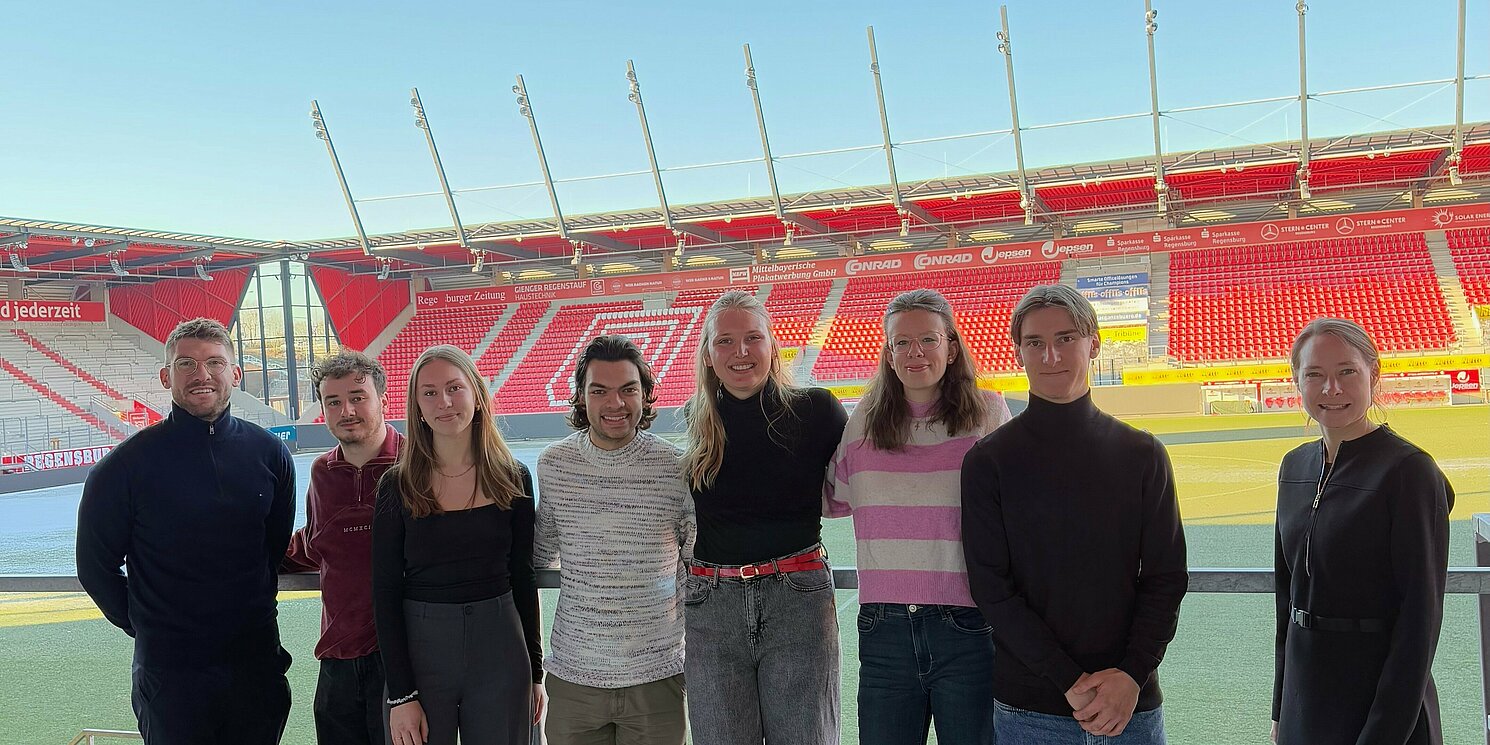In future, the German Football League (DFL) will require all clubs in the 1st and 2nd Bundesliga to have a climate and environmentally friendly mobility concept in order to obtain a licence for the respective division. As part of the collaboration between OTH Regensburg and SSV Jahn Regensburg, the dedicated team, consisting of Maja Gelius, Leah Legutke, Antonio Lungenstraß, Josef Stopfer, Marlon Tritschler and Leonie Zablozki, took the opportunity to implement a forward-looking project in the third semester. They were actively supported by Prof Dr Julia Hartmann, who provided them with the necessary theoretical knowledge in the ‘Project Management’ module. Stephan Burmeister, Coordinator for Corporate Development and Sustainability at SSV Jahn, acted as their contact person. The project was further developed in regular meetings and always closely coordinated with the club so that the students were able to present the results and recommendations on 13 January 2025 at Jahnstadion Regensburg. As a result, SSV Jahn can now sustainably adapt and further develop its strategies in order to fulfil DFL requirements.
First steps: The status quo analysis
To begin with, the team prepared a status quo analysis of the club's existing mobility measures. Both the travel of the professional team and the mobility of employees, young players and fans were scrutinised. An important part of the analysis was a visitor survey on 8 December 2024, before the home match against 1. FC Köln. The students spoke to fans about their experiences and suggestions for improvement regarding travelling to and from the match, while also informing them about existing sustainable mobility options such as the free combined public transport ticket, the ridesharing platform and free hire bikes. The results of this survey provided valuable input for future measures.
The concept: from analysis to recommendations for action
In addition to analysing existing mobility, the students developed a mobility concept that not only includes the reduction of CO2 emissions, but also the promotion of sustainable transport options for the entire club. Another important part of the project was benchmarking, in which SSV Jahn was compared with other clubs in the 1st and 2nd Bundesliga as well as clubs from the fields of handball and ice hockey. The result: SSV Jahn is already well positioned in terms of sustainability - but there is still potential for further improvement.
CO2 emissions and location analysis
In addition, the team carried out a Scope 3 analysis, an emissions assessment in accordance with the Greenhouse Gas (GHG) Protocol, in which the club's indirect CO2 emissions were analysed with a focus on mobility. This analysis included the mobility of employees and players during the working week as well as the travel of fans and service providers on home match days. In addition, a location analysis of the Jahnstadion Regensburg was carried out, which was positive, although further potential for improving the environmental impact was identified.
